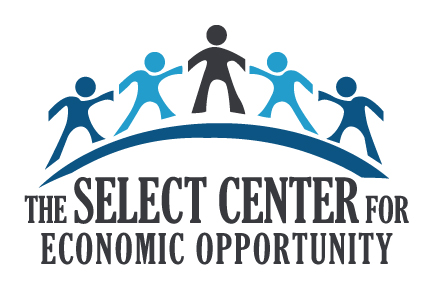Image © kbuntu #55224559 Adobe Stock
By Stephanie Elaine Cavanaugh
For refugees, arriving in America is not the end of the struggle. While it is a new opportunity to rebuild, starting anew in a foreign country and culture has its own set of challenges. Here, we’ll discuss only five of the many challenges that are faced by new arrivals. The hope is that in knowing and understanding what these challenges are, we can be better equipped and begin steps towards progress in lessening the hardship.
1: Language Barriers
The United States is not a country particularly known for being multilingual and language friendly. Imagine arriving to the US and not being able to speak English. Imagine the difficulties that would arise in day-to-day living. This is a huge challenge for many refugees. It is also one of the first barriers to address because once English is learned, at least in a limited working proficiency, it creates an advantage when addressing other challenges.
According to the Migration Policy Institute, in fiscal years 2008-2013, only 33% of refugees arriving in the US spoke any English, and of those, only 7% spoke “good” English. While many refugees begin immediately attending ESL classes, it can be a stressful process due to time constraints and transportation issues, as well as family demands. Imagine being a single mother of three and trying to juggle a minimum wage job with unpredictable hours while relying on the public bus schedule to get around, plus making it to ESL classes - all the while taking care of three children on minimal sleep. That’s a lot to juggle.
2: Financial Stability
Another huge challenge to address is finding financial stability. Typically, when a refugee arrives in the US, they have only a short window of time to find employment prior to the resettlement assistance running out. Often times, this means taking the first job offered within three months of arrival; typically a minimum wage job with unstable hours. In most cases, the only transportation option is the public transit system. This can mean, depending on the job location, spending several hours traveling to and from work.
Imagine how difficult it would be for an individual, let alone a whole family, to survive on only minimum wage. Where would you find the time to take steps to improve your situation for both yourself and your family? How would you learn the necessary steps, given the language and culture barrier? This can be a difficult and saddening journey for many refugees. In many cases, in their home country, they held high level jobs with advanced degrees. Many who once worked, for example, as doctors and engineers, find themselves trying to rebuild their lives in America by working in minimum wage jobs and competing against Americans for high level careers in their fields, at companies who won’t accept or honor their prior experience and education, because it was not in the United States.
3: Career Guidance
So what are the steps in moving up the ladder once a survival job is established? For refugees, this is a big question that too often goes unanswered. When you “don’t know what you don’t know” and are new to the language, how can you advance? Due to this, advancement is typically extremely slow. Moving up becomes reliant on who you know that can offer advice and is willing to give it, or if a mentor is available to assist in that aspect.
Although they are few, there are some groups out there that can provide guidance, assistance, and training. Organizations such as Upwardly Global and The Select Center are trying to bridge that gap by offering programs, classes, and information about recertification, job search, and career advancement; working to move those with the motivation and willpower, from survival jobs to successful careers.
4: Cultural Orientation
Cultural orientation is about learning the ways of a new culture and a new country to allow full participation, learning and growth potential, and ultimately, succeeding in a new environment. This does not mean the giving up of existing culture and identity. It means expanding on it to be more diverse and better equipped to live and work with people of different backgrounds. Arriving in the United States for the first time, for many, can be quite a culture shock. For some it is exciting, but for others, it can be downright terrifying. Culture is something that takes a great deal of time to adjust to and become comfortable with. Fortunately, many resettlement agencies offer some cultural orientation classes to assist.
Imagine arriving in a new country where most every aspect of the culture is different. Different language, food, financial system, transportation system, laws, religion, societal expectations, social structures … you get the point. These differences affect individuals in different ways, depending on their background and prior experiences. Sometimes, these differences and the attempt to adjust to them, lead to extreme stress, sadness, and depression.
5: Social & Emotional
All of these challenges can lead to difficulty transitioning and in some cases, a feeling of identity loss and depression. On top of that, many are already suffering from PTSD due to their experiences in their home country, such as war, extreme violence, death of loved ones, rape, loss, etc. These experiences are generally divided into three categories - preflight, flight, and resettlement. In the preflight phase, many experience trauma, both emotional and physical in their home country due to violence, unrest, and war. In the flight phase, there is the stress, both physical and emotional, of the long and strenuous journey from their home country, as well as the sense of loss. And that brings us to the resettlement phase. For some, this is arriving in the United States. For others, it is arriving in another foreign country in a refugee camp. The latter carries its own set of additional traumas and stresses. The point is, the whole thing is emotionally and physically taxing beyond words. On top of that, most refugees arrive in the US not knowing anyone. No family or friends for support and guidance or general social well being. It is a very long and difficult journey.
The first step in addressing these challenges is knowing they exist and understanding why. Locally, Houston is known for being a welcoming city for refugees. In fact, in 2014, Harris County alone resettled 4,818 refugees from across 40 countries. These numbers continue to grow each year. A large part of what makes Houston the amazing and beautiful city it is, comes from the cultural diversity that these incredible individuals bring with them. Let’s all work together to help rebuild lives in America, tear down the barriers and struggles, and take steps to help ensure a more successful and happy community, country, and world, for all.


